Almond milk has the greatest share of the alternative-milk market.
If you’re interested in finding the healthiest non-dairy milk, check out our other plant-based milk guide! I’ve covered the best oat milk to drink, including my opinions on which is better between almond and oat milk.
The Benefits of Plant-Based Milks
There are definitely some benefits to drinking plant-based milk, including almond. These include:
Lighter footprint: Any plant-based milk has a lighter impact than dairy with greenhouse gas emissions.
Dairy Free : Plant-based milks are a dairy alternative for people with sensitivities to dairy or a vegan diet.
Taste: Some people simply prefer the taste of milk alternatives, and there is something for everyone.
Is Almond Milk More Healthy Than Dairy Milk?
Not necessarily! As you’ll see below, there is a lot of Sneaky Stuff and Bad Stuff among almond milk products on the market. Apart from veganism or dairy sensitivities, people may be better off drinking the best dairy milks (local, organic, and from pasture-raised animals) over poor-quality almond milks.
Almond Milk: Healthy and Unhealthy Ingredients
What is Almond Milk Made of?
All almond milks include at least almonds and water. Many also have sweeteners, thickening agents, emulsifiers and stabilizers, flavorings, preservatives, added protein, and added vitamins and minerals.
Do I Need to Choose a Fortified Almond Milk?
Some almond milk brands fortify their drinks with calcium and vitamins A, D, and E. This is in order to better mirror the nutritional profile of commercial dairy milk.
You may prefer fortified almond milk if you’re seeking a nutritional replacement for dairy. However, it is possible for children to consume too much of nutrients such as Vitamin A, zinc, and niacin. This is a good thing to bring up with your health provider.
What About Added Sugar in Almond Milk?
Thanks to lactose, cow’s milk is naturally sweet. Some almond milks contain added sugars to mimic the taste profile of cow’s milk.
However, lactose in dairy doesn’t impact blood sugar responses as much as added sugars do. Some sweetened almond milk can have as much as 20 grams of sugar per serving. We do not consider almond milk with added sugar to be Good Stuff.
Why You Should Choose Almond Milk With No Additional Stabilizers and Emulsifiers
Many commercial almond milks have ingredients that act as thickening agents, emulsifiers, stabilizers, flavorings, and preservatives. The most problematic tend to be some of the stabilizers and emulsifiers. They are usually listed as gums, lecithins, and carrageenan.
Some research suggests that these ingredients may cause inflammation, leading to mild discomfort or gas. In the case of carrageenan, symptoms include potential colitis, irritable bowel syndrome (IBS), rheumatoid arthritis, diabetes, and colon cancer. I definitely recommend avoiding carrageenan. If you want to skip all of these questionable ingredients, choose an almond milk from our Good Stuff category.
Almond milk with added thickeners usually contains the fewest almonds. Another hack for discerning the almond content in your milk is to look at the fat, protein, and calorie numbers. The higher those are, the more almonds are likely to be in the milk.
Scary Stuff in Almonds
After a few salmonella outbreaks were traced to California-grown almonds in the early 2000’s, the USDA implemented a rule requiring the pasteurization of California almonds. This rule applies to both conventional and organic almonds. Unfortunately, some of the methods used to pasteurize non-organic almonds involve toxic chemicals. Carcinogenic herbicides like glyphosate also frequently contaminate almonds.
Unfortunately, due to cross-contamination, even organic stuff isn’t necessarily glyphosate free. Therefore, organic almond milk is the only Good Stuff. The Best Stuff is certified glyphosate-residue free by The Detox Project.
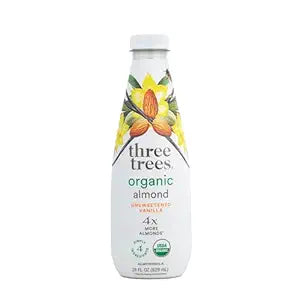

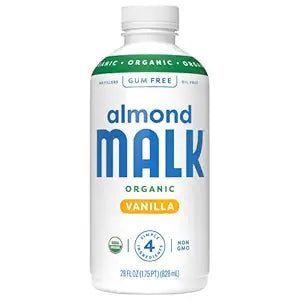
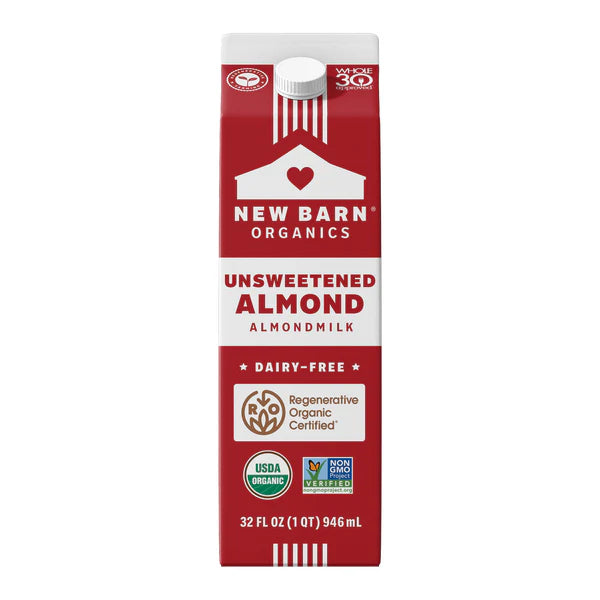
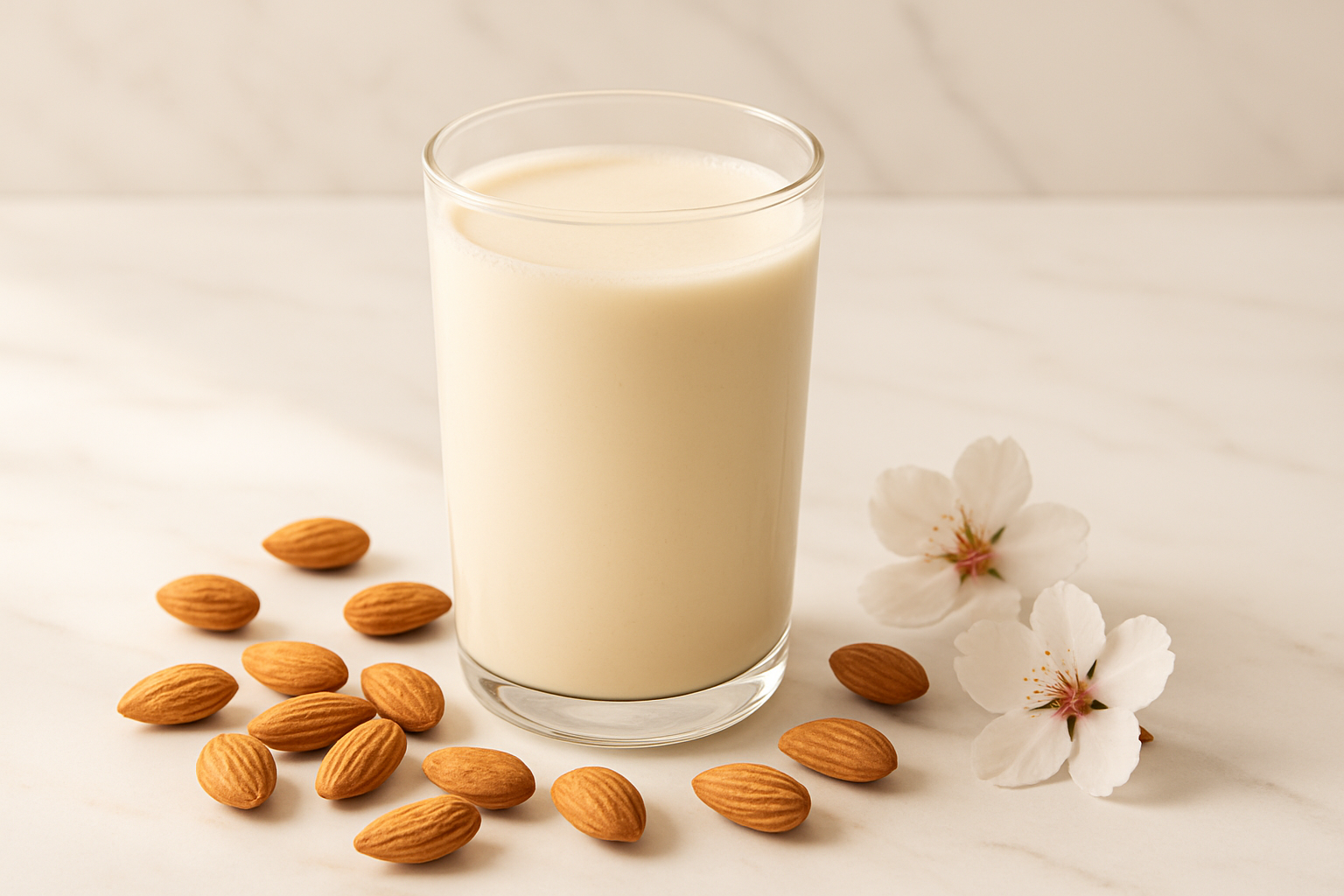


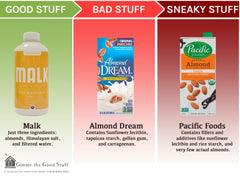
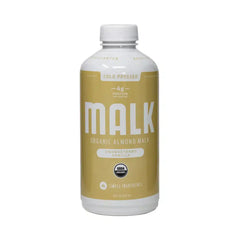
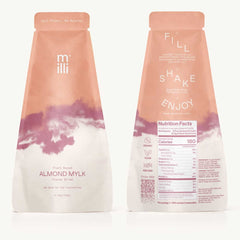
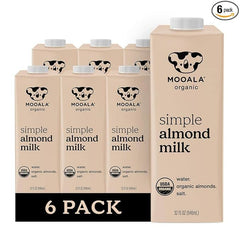
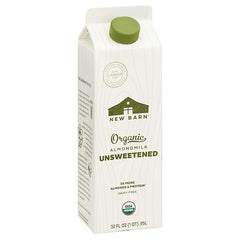
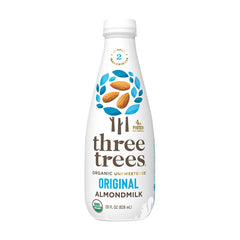
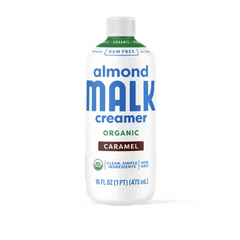
















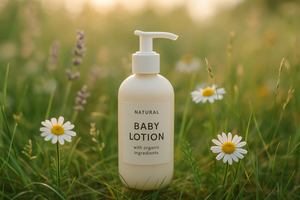

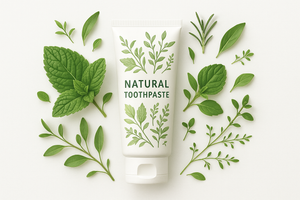


15 comments
Maia James
Update here:
Malk removed the natural flavor from their vanilla blend.Stephanie
What about the Simply brand?
bluesonpark
Thanks for the information! Really disappointing that all the good brands are in plastic containers!
Terry P
I appreciate all the great suggestions but almond milk production is so damaging to our environment, not just for the significant amount of water needed to grow the almonds, but also the amount of greenhouse gas emissions it produces and contributions to droughts. Almond crops even impact bees. As a site promoting health for families, I think you should also promote health for our planet. It is irresponsible of you to publish this guide without pointing these issues out. Personally, I drink Malk oat milk which is the least damaging to the environment.
Suzanne Weaver-Goss
Hi Shoni,
I hadn’t heard of this brand. I did a quick look. It is organic which is good, but they do add a few gums for thickening and emulsifiers which always makes me question how many almonds it has in it. And then I see they add pea protein to give it protein because they probably don’t have very many almonds in it. So as far as protein it’s good if you want pea protein. I wonder why it has to have so many other ingredients. I wonder why it has so much calcium and why? I will have to look into this more. I probably wouldn’t recommend it because of all the fillers.